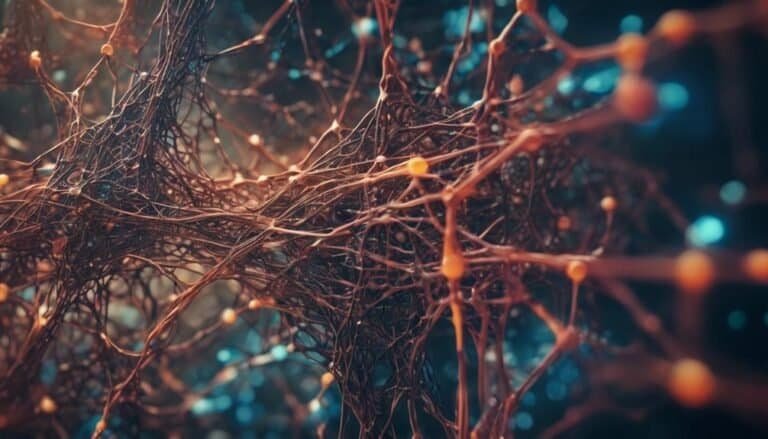Understanding Artificial Intelligence: A Beginner's Guide
Artificial Intelligence (AI) has become an increasingly prevalent topic in today's world, but what exactly does it entail? From its inception to its various applications, understanding AI is crucial for individuals navigating the digital landscape.
As we explore the intricacies of AI, we uncover a realm where machines mimic human intelligence, raising questions about ethics and the future of technology. Join us on a journey to demystify AI and discover its profound impact on society.
Key Takeaways
- AI mimics human cognitive processes for problem-solving and decision-making.
- Evolution of AI from Dartmouth Conference to modern breakthroughs.
- AI applications in healthcare, transportation, finance, entertainment, and education.
- Emphasis on ethical considerations and future trends in AI development.
What Is Artificial Intelligence?
Artificial Intelligence, often abbreviated as AI, is the branch of computer science that focuses on creating intelligent machines capable of simulating human-like cognitive processes. In essence, AI aims to develop systems that can perceive their environment, learn from it, and make decisions to achieve specific goals. The core concept behind AI is to enable machines to perform tasks that typically require human intelligence, such as problem-solving, decision-making, understanding natural language, and visual perception.
One of the key aspects of AI is its capabilities, which include but are not limited to machine learning, natural language processing, computer vision, and robotics. Machine learning allows AI systems to improve their performance on tasks through experience, without being explicitly programmed. Natural language processing enables machines to understand, interpret, and generate human language. Computer vision empowers machines to interpret and understand visual information from the real world. Robotics integrates AI to control robots and automate tasks in various industries. These capabilities collectively contribute to the advancement and application of AI in various fields, revolutionizing industries and enhancing human productivity.
History of AI
The evolution of intelligent machines traces back to the early 20th century when pioneering researchers laid the foundation for what would become the field of Artificial Intelligence. Over the years, technological advancements have significantly shaped the history of AI, leading to remarkable progress and breakthroughs in the field.
Here are some key milestones in the history of AI:
- 1956 – The Dartmouth Conference: Considered the birth of AI as a field, this conference brought together leading experts who discussed the possibility of creating an artificial brain.
- 1966 – ELIZA: Developed at MIT by Joseph Weizenbaum, ELIZA was one of the first chatbots, demonstrating natural language processing capabilities.
- 1997 – Deep Blue Defeats Kasparov: IBM's Deep Blue made history by defeating world chess champion Garry Kasparov, showcasing the power of AI in strategic decision-making.
These significant events highlight the continuous evolution of AI and the impact of technological advancements on shaping intelligent machines.
Types of AI
Exploring the diverse classifications of intelligence in machines reveals the intricate landscape of AI applications and capabilities. Two fundamental types of AI that play a significant role in shaping the field are machine learning and neural networks.
Machine learning is a subset of artificial intelligence that focuses on enabling machines to learn from data without being explicitly programmed. This type of AI empowers systems to automatically improve and evolve based on experience. Through algorithms and statistical models, machine learning algorithms can detect patterns, make decisions, and predictions.
Neural networks, inspired by the human brain's structure, are a type of AI that processes information in a way that mimics how humans learn and reason. These networks consist of interconnected nodes that work together to interpret complex data inputs and produce meaningful outputs. Neural networks have been instrumental in advancing AI applications such as image and speech recognition, natural language processing, and autonomous vehicles.
AI Applications in Everyday Life
In today's world, artificial intelligence plays a crucial role in transforming various aspects of our daily lives.
From revolutionizing healthcare with AI-powered diagnostics and personalized treatment recommendations to enhancing transportation systems through predictive maintenance and autonomous vehicles, the applications of AI are vast and impactful.
These advancements not only improve efficiency but also have the potential to save lives and make our daily routines smoother and more convenient.
AI in Healthcare
Harnessing the power of artificial intelligence, healthcare professionals are revolutionizing the way medical diagnoses and treatments are conducted in everyday life. AI is making significant strides in healthcare, particularly in patient diagnosis and medical imaging. Here's how AI is transforming healthcare:
- Enhanced Patient Diagnosis: AI algorithms can analyze vast amounts of patient data to assist doctors in making accurate diagnoses quicker and more efficiently.
- Improved Medical Imaging: AI-powered imaging tools can interpret medical scans such as MRIs and X-rays with precision, aiding in the early detection of diseases.
- Personalized Treatment Plans: AI can analyze patient data to create personalized treatment plans, ensuring each individual receives tailored care for better health outcomes.
AI in Transportation
With the integration of artificial intelligence into various sectors, the transportation industry is experiencing a significant transformation in how we perceive and interact with everyday commuting solutions. Autonomous vehicles are at the forefront of this revolution, offering the potential to enhance road safety and efficiency.
AI plays a crucial role in optimizing traffic management systems, reducing congestion, and improving overall transportation experiences. Moreover, smart infrastructure powered by AI enables real-time monitoring of traffic flow and enhances the efficiency of transportation networks.
Predictive maintenance is another key application of AI in transportation, allowing for proactive maintenance scheduling based on data analysis, which helps prevent breakdowns and ensures the smooth operation of vehicles and infrastructure. This convergence of AI technologies is reshaping the future of transportation towards a more intelligent and efficient system.
Ethics and AI
Considering the ethical implications of integrating artificial intelligence into various aspects of society is paramount in ensuring responsible and equitable deployment of this technology. Ethical considerations in AI encompass a wide range of issues, including bias detection to ensure fairness and non-discrimination in AI systems.
Here are three crucial points to understand regarding ethics and AI:
- Transparency: It is essential for AI systems to be transparent in their decision-making processes. Understanding how AI arrives at a particular outcome is crucial for ensuring accountability and trustworthiness.
- Fairness: Ensuring that AI systems are fair and unbiased is a fundamental ethical consideration. Detecting and mitigating biases in algorithms and data sets is vital to prevent discriminatory outcomes.
- Privacy: The ethical use of AI also involves safeguarding individuals' privacy. Implementing measures to protect sensitive data and respect user privacy rights is crucial in the development and deployment of AI technologies.
Future of Artificial Intelligence
The advancements in ethical considerations within AI systems lay a strong foundation for exploring the potential trajectory of the Future of Artificial Intelligence. As AI continues to evolve, its impact on various sectors like entertainment and education becomes increasingly significant.
Future Trends in AI
| Trends | Implications |
|---|---|
| AI in entertainment | – Personalized content creation |
| – Enhanced user experiences | |
| – Improved content recommendations | |
| AI in education | – Customized learning paths for students |
| – Automated grading and feedback systems | |
| – Virtual tutors for individualized assistance |
AI in entertainment is poised to revolutionize how content is created and consumed, offering personalized experiences and better recommendations. Meanwhile, AI in education is set to transform traditional learning methods by providing tailored learning paths, automated grading, and virtual tutors. These trends indicate a future where AI plays a pivotal role in enhancing user experiences and optimizing educational outcomes.
Conclusion
In conclusion, artificial intelligence is a rapidly evolving field with vast potential to transform various aspects of our lives.
As we continue to explore the capabilities of AI, it is crucial to consider the ethical implications and ensure that it is used responsibly.
The future of artificial intelligence holds endless possibilities, and only time will reveal the true extent of its impact on society.
Stay tuned for exciting advancements in this fascinating field.







